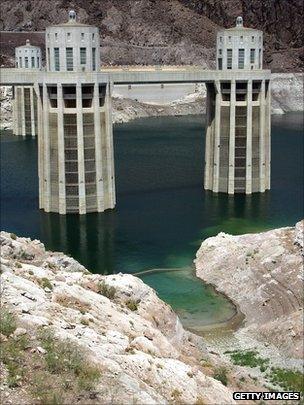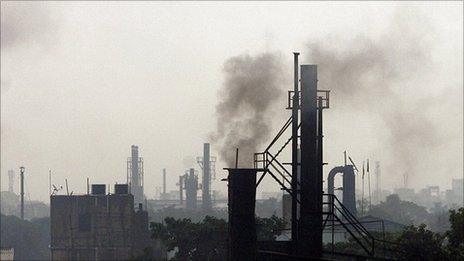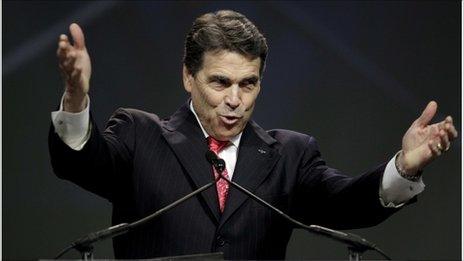Companies call for tougher climate action
- Published

Climate campaigns are hotting up ahead of the UN climate summit
Leaders of nearly 200 major companies around the world have called for tougher action on climate change.
The 2C Challenge, external, co-ordinated by the Prince of Wales Corporate Leaders Group, external, says that climate change puts society's future prosperity at risk.
But the window to keep global warming below 2C has "almost closed", it warns.
Companies signing up include UK retailer Tesco, energy provider EDF, electronics company Philips, chemicals giant Unilever, eBay and Rolls-Royce.
The communique is published six weeks before governments of 192 countries convene in Durban, South Africa, for the annual UN climate summit.
Analyses show that at current rates, greenhouse gas emissions are not being curbed quickly enough to keep the global average temperature rise since pre-industrial times below 2C, which is what many governments say they want.
A majority prefer the tougher target of 1.5C, which is almost certainly out of reach without investment in climate "technical fixes".
The Corporate Leaders Group has issued similar calls before, but has this time reached out to 30 countries - more than in previous years.
"The expansion of the network to include business groups from other countries shows that, far from losing interest in climate change as an issue, there is an emerging and increasingly international consensus amongst enlightened corporate leaders of the need for urgent action," said Eliot Whittington, director of the UK Corporate Leaders Group.
On Wednesday, the Institutional Investors Group on Climate Change, representing more than $20 trillion in assets including banking giants HSBC and BNP Paribas, made a similar call.
They argue that governments acting quickly to implement tough climate policies would reap the biggest investments and the biggest rewards.
'Concerted effort'
The corporate leaders communique says that the scientific and economic case for tackling climate change remains clear.
"If we do not act, climate change risks seriously undermining future global prosperity and inflicting significant social, economic and environmental costs on the world," it reads.

The US Hoover Dam is seeing its lowest water levels since the 1960s, with drought a major factor
"If we take the right steps, we can secure a low carbon-emission economy that is more resilient, more efficient and less vulnerable to global shocks."
Those "right steps" include, it says, breaking the deadlock that has prevented progress in the UN climate process, eliminating financial incentives for using fossil fuels, conserving forests and speeding up the promised transfer of funding from rich countries to poor to help them develop climate-friendly infrastructure.
But, it says, many governments do not appear to realise the negative impacts that climate change can have on their societies and economies.
One government that has taken the issue of climate impacts on board is China, where official reports in recent years have spoken of damage from flooding, drought and rising temperatures.
Andrew Brandler, CEO of energy utility CLP Hong Kong, said he was endorsing the corporate leaders' call partly because a strong international agreement on climate change would improve the prospects for rolling out renewables.
"Clean energy remains expensive vis-a-vis coal, the dominant fuel of choice in the Asia-Pacific region," he told BBC News.
"If we are to see the region growing in a sustainable manner, clear international policies with well-designed incentives (and penalties) provides the long-term certainty needed to mobilise the massive amount of investment required."
China, he said, was "putting action behind its words" - a reference, among other things, to the recent prioritisation of environment and energy issues in the 12th Five-Year Plan.
Many of the leaders involved in the initiative have ties with their home governments, and organisers hope that through these links, they can persuade those governments to work harder for a deal in Durban and take more unilateral action.
"Climate change is one of the most important environmental issues of our time," said Truett Tate, vice-chairman of Lloyds Banking Group.
"Effecting change will require a concerted effort between businesses, governments as well as individuals."
The communique is being left open for signature through the Durban meeting up to the Rio+20 summit next year in Brazil, which marks 20 years since the original and seminal Earth Summit.
Follow Richard on Twitter, external
- Published14 September 2011

- Published20 August 2014

- Published17 May 2011
- Published9 January 2011